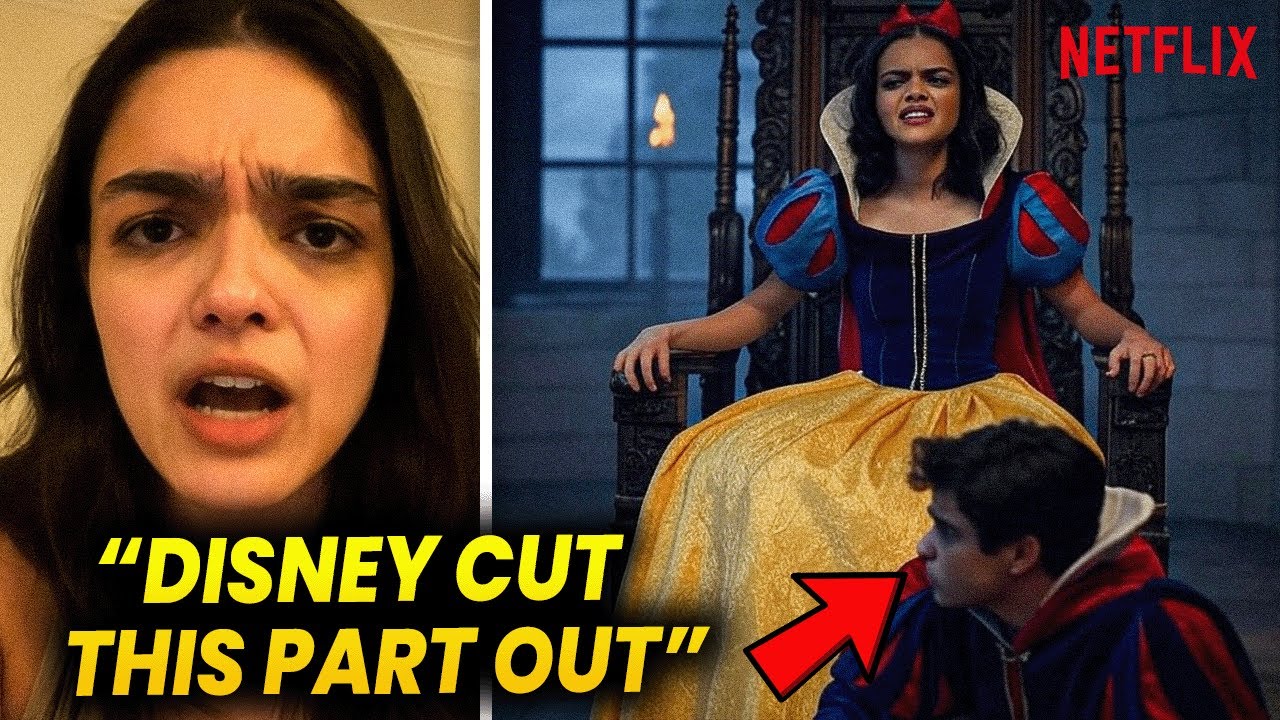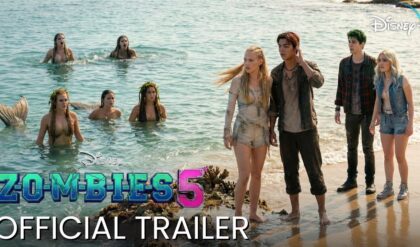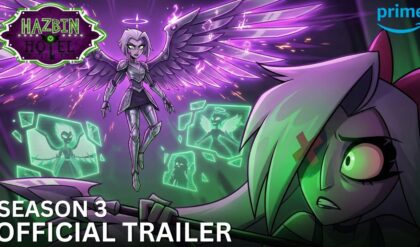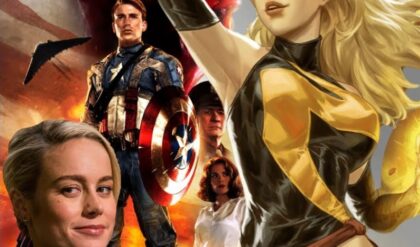9 Hidden Facts About Disney’s Snow White Remake
Disney’s live-action Snow White (2025), starring Rachel Zegler as the titular princess and Gal Gadot as the Evil Queen, was meant to be a triumphant reimagining of the 1937 animated classic that launched the studio’s legacy. Instead, it became a lightning rod for controversy, bombing at the box office with a $115 million loss and igniting debates over its creative choices, casting, and behind-the-scenes turmoil. While Disney has tried to control the narrative, several lesser-known facts about the production have surfaced, shedding light on why the film went off the rails. From political tensions to production mishaps, here are nine secrets Disney would rather keep under wraps.

1. Rachel Zegler’s Political Posts Sparked a Firestorm
Rachel Zegler, the 23-year-old star of Snow White, faced intense backlash for her social media activity during the film’s promotional cycle. Her August 2024 Instagram post, “and always remember, free Palestine,” alongside a Snow White trailer, triggered a wave of online harassment, including death threats against co-star Gal Gadot, a former Israeli Defense Forces instructor. The post, which Zegler refused to delete despite pressure from producer Marc Platt, led Disney to hire security for Gadot and vet Zegler’s social media. Her post-election comment, “F*** Donald Trump,” further alienated conservative audiences, with some blaming her activism for the film’s box office flop. On X, users debated whether Zegler’s views sabotaged the film, with one stating, “Her politics turned off half the audience.”
2. Gal Gadot and Rachel Zegler’s Off-Screen Tensions
Reports of friction between Zegler and Gadot added fuel to the controversy. Sources like The Daily Mail and Pajiba claim the actresses clashed over their differing views on the Israeli-Palestinian conflict, with Gadot’s pro-Israel stance contrasting Zegler’s pro-Palestine posts. While both maintained professionalism in public, insiders noted a “chilly” dynamic on set, with Zegler reportedly feeling unsupported by Gadot during the harassment she faced. A Variety report suggested Disney struggled to manage the fallout, fearing the feud would overshadow the film’s marketing. The tension culminated in boycott calls from both actresses’ supporters, hurting ticket sales.
3. The CGI Dwarves Disaster
One of the most criticized aspects of Snow White was its depiction of the seven dwarves, portrayed as CGI creatures rather than human actors. Initially, Disney planned to cast little people, but backlash over representation led to a last-minute pivot to CGI, costing millions in post-production. The decision drew ire from advocacy groups, with actors like Dylan Postl arguing it robbed little people of roles. Fans on Reddit called the dwarves “uncanny” and “cheap-looking,” comparing them to the low-budget CGI in Cats (2019). A YouTube review noted that the dwarves’ design alienated audiences, contributing to the film’s 66% box office drop after its opening weekend.
4. A Devastating Set Fire Delayed Production
In March 2022, a fire broke out on the Snow White set at Pinewood Studios in the UK, destroying a thatched cottage meant for the dwarves’ home. The blaze, caused by an electrical fault, halted filming for weeks and added millions to the budget, which ballooned to $410 million with marketing. The Guardian reported that the incident, combined with delays from the 2023 writers’ strike, pushed the release from 2024 to 2025, allowing negative buzz to fester. Insiders claim Disney downplayed the fire’s impact to avoid panic among investors, but it set the tone for a troubled production.
5. The Writers’ Strike Forced a Script Overhaul
The 2023 WGA strike disrupted Snow White’s development, forcing a rushed script rewrite. Writers Greta Gerwig and Erin Cressida Wilson, tasked with modernizing the story, were sidelined during the strike, leaving a skeleton crew to revise the screenplay. The result was a disjointed narrative that critics, per Rotten Tomatoes, described as “lacking coherence.” The feminist reimagining—emphasizing Snow White’s leadership over romance—felt forced to some, with a YouTube critic noting that the script “sacrificed charm for preachiness.” Disney’s attempt to keep the rewrite under wraps backfired when leaks revealed Gerwig’s frustration with the final draft.
6. David Hand Jr.’s Public Rebuke
David Hand Jr., son of the original Snow White director, publicly slammed the remake, calling it a “disgrace” to his father’s legacy. In a Telegraph interview, he criticized Zegler’s comments about the 1937 film’s “sexist” plot and accused Disney of prioritizing “woke” politics over storytelling. His remarks, echoed by conservative outlets, fueled a boycott campaign that gained traction on X, with hashtags like #BoycottSnowWhite trending. Hand’s involvement lent credibility to critics, amplifying the perception that Disney had betrayed its heritage. The studio avoided responding directly, hoping to let the controversy fade.
7. Ariana DeBose’s Accidental Shade
Zegler’s relationship with West Side Story co-star Ariana DeBose took a hit when DeBose inadvertently shared a quote from Jonah Platt, son of producer Marc Platt, blaming Zegler’s “narcissism” for Snow White’s failure. The Instagram story, quickly deleted, sparked speculation of a feud, with Pajiba reporting that DeBose was frustrated by Zegler’s handling of the Snow White press tour. Fans on X debated whether DeBose’s action was intentional, with one user writing, “Ariana threw shade and then played innocent.” The incident added to Zegler’s public relations challenges, reinforcing perceptions of her as divisive.
8. Disney’s Marketing Missteps
Disney’s marketing for Snow White was widely criticized as ineffective. The first trailer, released in August 2024, focused heavily on CGI visuals and Zegler’s modernized Snow White, but failed to evoke the nostalgia of the original. A second trailer, emphasizing Gadot’s Evil Queen, was better received but came too late to reverse negative sentiment. The Drum noted that Disney’s reluctance to address Zegler’s controversies head-on allowed boycott campaigns to dominate the narrative. The studio’s decision to limit Zegler’s press appearances after her political posts backfired, as it fueled speculation of internal panic. By opening weekend, audience awareness was low, with only 43% of polled viewers aware of the film, per Box Office Mojo.
9. The Box Office Catastrophe
Snow White’s financial failure is a stark contrast to Disney’s live-action remake successes. With a $410 million budget, the film grossed just $225 million worldwide, including a paltry $43 million domestic opening weekend—one of the worst for a Disney remake. A 66% drop in its second week, reported by Forbes, reflected poor word-of-mouth and review-bombing on platforms like IMDb, where trolls targeted Zegler’s performance. The film’s losses, estimated at $115 million, prompted Disney to shelve a planned Tangled remake and reassess its live-action strategy. Posts on X claimed Zegler was “fired” or “blacklisted,” though no evidence supports these claims, highlighting the role of social media in amplifying the film’s failure.
The Broader Context
These nine facts reveal a production plagued by missteps, from creative choices to external pressures. Snow White’s failure reflects broader challenges in Hollywood’s live-action remake boom. Audience fatigue with reimaginings, evident in Mufasa: The Lion King’s underperformance, has made success harder to achieve. The polarized cultural climate, amplified by X and TikTok, turned Zegler’s activism and the film’s feminist narrative into lightning rods, with conservative critics labeling it “woke” and progressive fans defending its diversity.
Disney’s handling of the controversy—vetting Zegler’s posts, limiting her press, and failing to counter boycott narratives—suggests a studio caught off guard. Variety noted that Disney’s pivot away from Zegler as a brand ambassador reflects caution, but her upcoming projects, including She Gets It From Me (2026) and Evita on the West End, indicate she’s not out of the game. The studio’s secrecy around the production’s woes, from the set fire to the script issues, allowed speculation to flourish, with YouTube channels and Reddit threads filling the void with unverified claims.
Impact on Disney and Zegler
For Disney, Snow White’s flop is a wake-up call. The studio’s reliance on nostalgia-driven remakes is faltering, with analysts suggesting a shift toward original content or more faithful adaptations. The backlash against the CGI dwarves and Zegler’s casting highlights the delicate balance of updating classics for modern audiences. Disney’s stock, down 3% post-release, reflects investor concerns, though its $7.6 billion 2024 revenue cushions the blow.
Zegler, at 23, faces a career crossroads. Her talent—evident in her Golden Globe-winning West Side Story performance—remains undeniable, but her polarizing image has made her a risky bet for studios. Evita’s mixed reception and reported delays on She Gets It From Me due to alleged on-set issues add pressure, but her youth and versatility offer a path forward. A strategic pause from social media, as suggested by The Hollywood Reporter, could help her rebuild.
Looking Ahead
Disney would prefer these nine facts remain buried, as they expose vulnerabilities in its creative and marketing strategies. The Snow White saga underscores the risks of reimagining iconic stories in a divided cultural landscape, where every decision—from casting to CGI—faces scrutiny. For Zegler, the challenge is to leverage her upcoming roles to move past the controversy, proving her resilience as she did after West Side Story. As Hollywood grapples with evolving audience expectations, the lessons from Snow White’s failure will shape Disney’s next steps, while fans continue to debate the hidden truths behind the film’s collapse.
Conclusion
Disney’s Snow White was envisioned as a bold reimagining, but its $115 million loss and the nine hidden facts—from Zegler’s political firestorm to the CGI dwarves debacle—reveal a production doomed by missteps and controversy. The studio’s efforts to suppress these truths only amplified speculation, with X and YouTube fueling narratives of failure and betrayal. As Disney and Zegler navigate the fallout, the Snow White saga serves as a cautionary tale about the perils of remaking a classic in an era of polarized audiences and relentless online scrutiny. The fairy tale didn’t end happily, but its lessons are impossible to ignore.





